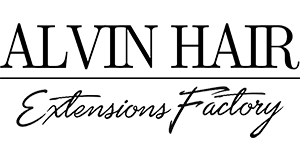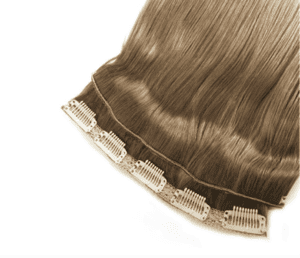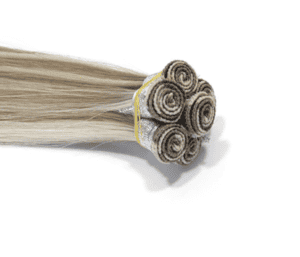
For entrepreneurs looking to start their own hair extensions business, it is essential to understand the legal requirements of this venture.
Depending on where you live and what services you decide to offer, a cosmetology license may be required to operate legally.
Knowing the laws in your area can help ensure that your business runs smoothly and without any problems down the road.
In this article, we will discuss why a cosmetology license is necessary for hair extension businesses and how you can go about obtaining one if needed.
What is a cosmetology license?

A cosmetology license is a government-issued credential that certifies that an individual has met the educational and training requirements necessary to practice in the beauty industry.
The purpose of licensing a salon is to ensure that those providing beauty services are properly trained and qualified to do so. It also serves as protection for both service providers and their clients.
In most states in the United States, different states have different laws and regulations surrounding cosmetology licenses, so it’s important to check with your state board of cosmetology to determine what is required in order to obtain a license.
In Europe, the EU Cosmetics Directive regulates beauty professionals, including hair stylists.
Typically, applicants must complete a certain number of hours of education at an accredited cosmetology school and pass an exam in order to be eligible for a cosmetology license.
The process of obtaining a cosmetology license varies from state to state but generally involves the completion of an accredited program and the passing of a written or practical exam.
The length of the program is typically between 1,500 and 2,000 hours depending on the requirements in your state.
During this time in beauty school classes, students will learn about hair styling, hair braiding, cutting, coloring, and chemical services.
Different Types of Services Covered by Cosmetology License

A cosmetology license covers a wide range of services related to the beauty industry, including hair styling, cutting, coloring, and chemical treatments.
These services are all essential to providing clients with quality results that meet their individual client needs.
Hair Styling
Hair styling is one of the most fundamental services provided by a licensed cosmetologist. It may also involve hair extension application and understanding different hair extension methods.
This method involves creating various hairstyles such as braids, updos, and curls. It this method also includes cutting and trimming hair to create desired looks.
Hair stylists use a range of tools and techniques to achieve desired natural hair results for the style hair of their clients.
Hair Coloring

Hair coloring is another service offered by licensed cosmetologists. This process involves stylist using an array of dyes and tints to lighten or darken hair in order to achieve desired results.
It’s important for those providing these services to understand the effects of certain colors on different types of hair in order to prevent any damage from being done.
Chemical Treatments
Chemical treatments are another popular service offered by cosmetologists that can have dramatic effects on a person’s appearance.
Treatments such as relaxers, texturizers, permanent waves, and keratin treatments are all used to modify the texture and shape of a client’s hair.
As with any other service provided under a cosmetology license, it is important for practitioners to stay up-to-date on the latest techniques in order to ensure the best possible results for their clients.
Do you need a cosmetology license to offer hair extension products?
The answer to this question depends on the specific type of hair extensions business you are running.
Generally speaking, if you are providing any kind of service that requires touching the client’s hair or scalp, then a cosmetology license is required to operate legally.
For those offering non-touching services such as selling hair extension services or providing advice on proper hair extension application hair care, and maintenance, a cosmetology license may not be necessary in many states.
However, it is always best to check with your state board of cosmetology to determine what the specific laws are in your area.
Can hair stylists offer hair extensions without a cosmetology license?

It is important to note that a cosmetology license does not automatically qualify someone to offer hair extensions.
In order to provide quality services with this type of product, stylists must obtain additional specialized training materials and certifications related to hair extensions.
Some do not need to get certified to be able to run businesses and get potential clients.
This includes hands-on training and learning how to properly install, remove, style, and maintain different types of extensions. Without appropriate knowledge and expertise in the field, service providers put their clients at risk for potential damage or complications.
Ultimately, obtaining a cosmetology license is an essential step for anyone looking to start a business offering hair extension services.
Not only does it demonstrate that they are at the same time though, practitioners should also make sure they are certified and have the necessary skills and experience to provide quality services.
By having a cosmetology license, not only do stylists demonstrate that they have the required knowledge and skill set to perform their duties, but they also gain access to important resources and support from their state board of cosmetology.
Overview of the limitations of offering hair extensions without a cosmetology license
It is important to note that even if one does not have a cosmetology license, they still may be able to offer customers certain services related to hair extensions.
However, these will likely be limited and should only be offered with the guidance of an experienced professional or after careful research has been conducted.
Furthermore, without a cosmetology license, any services related to hair extensions are likely not covered by insurance and the practitioner may not have access to important resources such as legal support or professional liability protection.
For these reasons, it is highly recommended that anyone offering hair extension services obtain a cosmetology license in order to operate safely and legally.
Conclusion
While having a cosmetology license is not always required for running a hair extension business, it gives practitioners the necessary qualifications and expertise needed to provide quality services.
It also provides important protections such as legal support and professional liability coverage.
Ultimately, obtaining a cosmetology license ensures that those providing hair extension services have the knowledge comprehensive education, and skill set needed to do so safely and effectively. It is the best way to ensure that old and new clients receive the highest quality results.
Therefore, it is highly recommended that anyone looking to sell or start a business offering hair products obtain a cosmetology license in order to maximize their chances of success.
For professionals already working as hairstylists or barbers, or salons, earning a cosmetology license can open up a world of additional market opportunities for them to expand their service offerings and diversify their income streams.
Additionally, having a cosmetology license gives practitioners access to valuable resources such as professional liability insurance and legal assistance if needed.
With these benefits, obtaining a license can be an important step for anyone wanting to offer hair extension services professionally.
Alvin Hair - Hair Extension Supplier
Are you a hairstylist or barber looking to expand your service offerings and diversify your income streams?
Alvin Hair is a reliable hair extension supplier for your hair businesses and salon. We provide the highest quality of hair extensions– from synthetic to human hair extensions, with a variety of colors and textures to choose from.
Our team of experienced specialists is here to guide you in choosing the best products that fit your needs and budget.
And, with our fast delivery and easy payment options, Alvin Hair is the perfect choice for any professional looking to offer high-quality hair extension services.
Contact us today on our website to find out how we can help you take your business to the next level!








